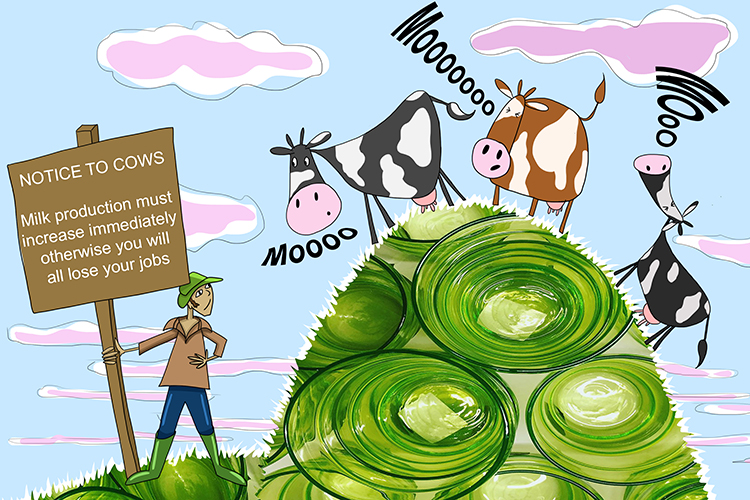Mood – how you are made to feel as a reader
Mood is how we are made to feel as readers after reading an article, story, poem, essay or any piece of writing.

The cows mooed (mood) their anger when the farmer wrote a sign telling them their productivity rate needed to increase. The cows didn’t have a good feeling.
Mood can be created by means of setting (where the action take place), theme, diction (choice and use of words and phrases), and tone.
However, different readers may experience different moods as a result of reading exactly the same piece of writing. For instance, writing that is bright and light-hearted may still contain an element that reminds someone of a very damaging experience; and a generally heart-rending piece might still trigger memories of something positive.
So the tone of a piece can be set by the writer but the mood of the reader when reading it depends on their life experiences or interpretation of the piece.
Each of the following three examples describes the same place. See what sort of mood each piece puts you in:
Example 1
A shadow lay over the yard like a grave cloth. The grass was long and unkempt. Against the bole of a withered oak lay a child’s ball shrouded by the creeping Bermuda. The features of the house shimmered in the blaze of the afternoon, blurred beyond recognition to the unwary stranger.
Example 2
Zinnias blossomed against the cherry tree beside the front porch, their sun-kissed inner circles wreathed in bashful pink. At the base of the grand oak, a mother rabbit led her furry litter out from the shade of a rhododendron’s lacy leaves. She sniffed the breeze with delicate nostrils, brushed her eye with a paw, and bounded into the sun
Example 3
The dirt showed through the grass in brown scars. The grass that remained was brittle and sharp, like a smoker’s eyebrows. Signs remained of the home’s luxuriant past—the garden path, the children’s toys, the “Home of the Week” sign out front—but they lay wasted. An American flag still fluttered on its pole, but the sun had washed it out to a milky translucence, and its trailing edge was shredded. It hung from only one tether, twisting in the wind like a castaway’s last cry for rescue.
All three examples by Jeff Gerke,
from The Art and Craft of Writing Christian Fiction
What mood did you get from these paragraphs?
Our reactions were:
Example 1 = Not a fun place to be; eerie; strange; makes you feel edgy.
Example 2 = A pleasant place – a Disney moment.
Example 3 = A depressing place, which probably leaves you feeling depressed, too.
Example 4
If the tone is classical (relating this to music) then this would set classical music lovers in an excellent mood, but to a heavy metal rock enthusiast it could be very annoying.
Example 5
A piece of writing might express anger, for instance when a mother is telling off her children, but you may recognise this in your own mother when you were you were young, which could bring a smile to your face.




